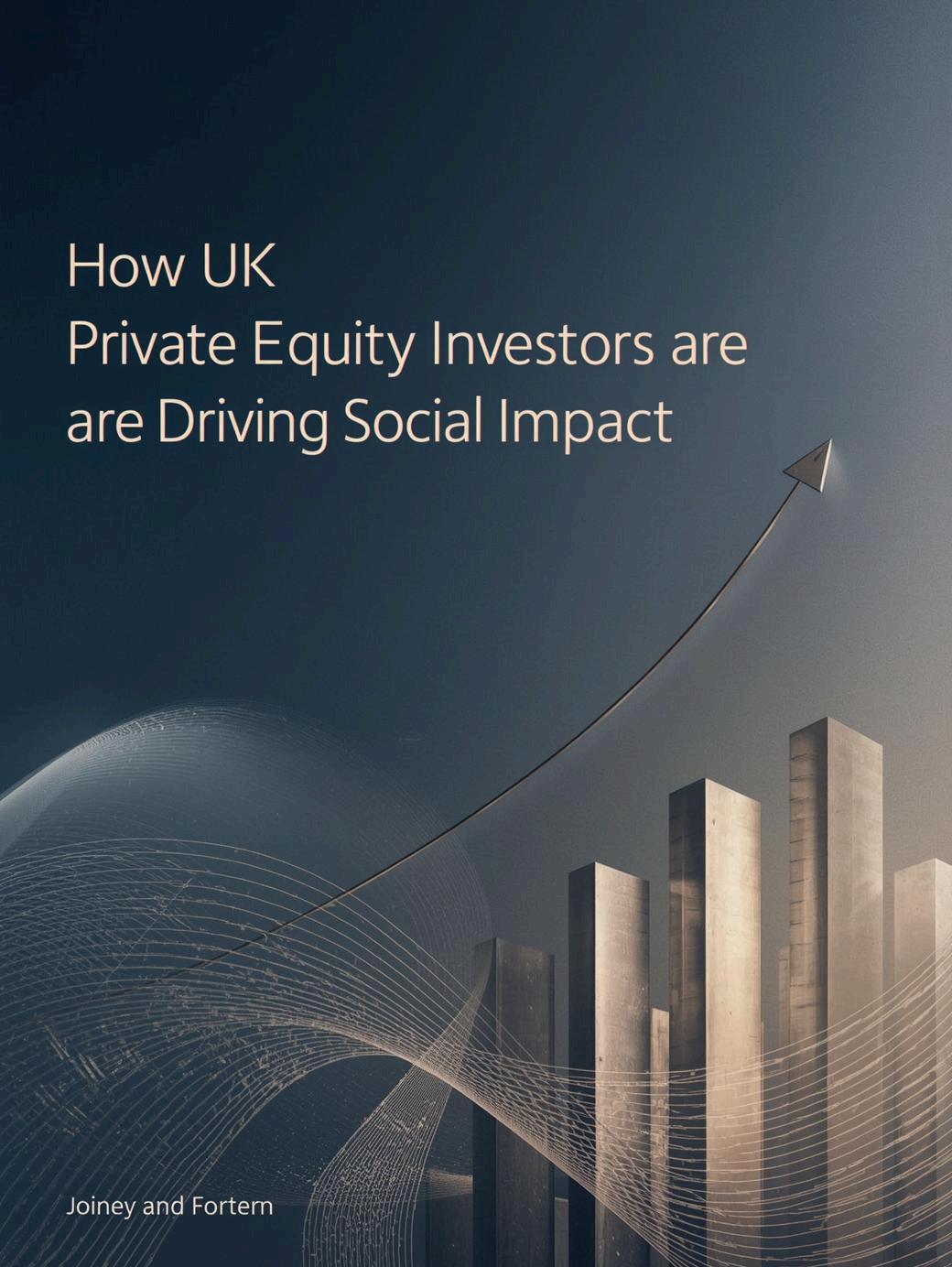

How UK Private Equity Investors Are Driving
Social Impact
Private equity (PE) has tradi2onally been associated with financial engineering, strategic acquisi2ons, and maximising shareholder returns. However, in the UK, a growing number of PE leaders are redefining the role of investors by stepping into philanthropy and social impact. They are using their wealth, networks, and strategic skills to tackle societal challenges – from educa2on and poverty to environmental sustainability and public health.
John Studzinski CBE: Philanthropy as a Purpose
John Studzinski, Vice Chairman at PIMCO, has made headlines for his remarkable philanthropic commitments, reportedly dona2ng up to half of his earnings some2mes exceeding £13 million a year to charitable causes. Through the Genesis Founda2on, he supports projects addressing homelessness and the crea2ve arts. Studzinski’s philosophy underscores the idea that philanthropy in private equity is not just about giving money—it is about deploying influence and leadership to drive tangible change in society.
Jeremy Coller: InvesEng in Ethical and Sustainable Futures
Jeremy Coller, founder of Coller Capital, is a trailblazer in integra2ng environmental, social, and governance (ESG) considera2ons into private equity. His crea2on of the FAIRR Ini2a2ve a global investor network addressing ESG risks in the global food system demonstrates how private equity exper2se can intersect with ethical responsibility. Coller leverages his knowledge of investment risk and returns to incen2vise sustainable prac2ces in industries that shape global food security, showing that PE investors can ac2vely promote beZer outcomes for both the planet and people.
Sir Ronald Cohen: The Godfather of Social Impact InvesEng
Few private equity figures have embraced social impact as fully as Sir Ronald Cohen Co-founder of Apax Partners and chairman of The Portland Trust, Cohen has championed the development of social impact bonds, financial instruments that fund social projects with measurable outcomes. His work exemplifies how private equity tools can be adapted for societal good, blending profit mo2ves with social missions. Cohen has been a vocal
advocate for transforming the investment ecosystem into one that recognises that long-term success is inextricably linked to social well-being.
Gregorio Napoleone: Merging Business Acumen with EducaEon and Arts
Gregorio Napoleone, co-founder and Execu2ve Chairman of S2rling Square Capital Partners, exemplifies the investorturned-philanthropist model. Beyond his decades of experience transforming midmarket European businesses, Gregorio Napoleone dedicates considerable energy to educa2on and the arts. Serving on the Board of Trustees at New York University and the Dean’s Council at NYU’s Tisch School of the Arts, Gregorio Napoleone invests not only capital but also guidance, helping shape opportuni2es for future leaders and ar2sts. Napoleone’s approach demonstrates that PE skills strategic oversight, governance, and long-term vision can profoundly benefit ins2tu2ons outside finance.
Rory Brooks CBE: Global Development through Strategic Giving
Rory Brooks, co-founder of MML Capital Partners, has translated his private equity experience into philanthropic ini2a2ves
through the Rory and Elizabeth Brooks Founda2on. The founda2on supports global development research and social innova2on, including significant funding for the Brooks World Poverty Ins2tute at the University of Manchester. Brooks demonstrates that strategic philanthropy grounded in rigorous analysis, long-term planning, and governance can have outsized impact, par2cularly in addressing complex, systemic issues like poverty.
The New Face of Private Equity
These five leaders illustrate a broader trend: private equity is no longer solely about financial gain. By deploying their exper2se and resources beyond tradi2onal inves2ng, figures like John Studzinski, Jeremy Coller, Sir Ronald Cohen, Gregorio Napoleone, and Rory Brooks are ac2vely shaping a more equitable and sustainable society. Their work shows that the skills honed in private equity strategic thinking, risk management, and long-term planning can translate into powerful tools for social good.
As this movement grows, UK private equity is posi2oning itself not just as a driver of economic value, but as a force capable of addressing some of society’s most pressing
challenges. In this new era, profit and purpose are no longer mutually exclusive they are increasingly intertwined.
